Regulation
Consensys Responds to SEC Lawsuit Over MetaMask

Following the SEC lawsuit where Consensys is accused of operating as an unregistered broker through its MetaMask software, the firm has issued a response.
The SEC accused MetaMask of carrying out activities similar to securities brokerage without the appropriate registrations through its swap and staking services. Moreover, this legal action, filed in the U.S. District Court for the Eastern District of New York, follows a Wells notice Consensys received in April.
SEC’s Lawsuit Against Consensys
According to the SEC, Consensys, via MetaMask, facilitated over 36 million crypto asset transactions, including 5 million that involved crypto asset securities, without the required registration. These activities are said to have earned Consensys more than $250 million in transaction fees.
The SEC is specifically concerned about MetaMask’s Swaps and Staking services as these, in the view of the regulator, involve the sale of unregistered securities tokens, including CHZ, LUNA, MATIC, MANA, and SAND.
🚨NEW: The @SECGov has formally charged @Consensys with violating securities laws by operating as an unregistered broker dealer and engaging in the offer and sale of securities through its @MetaMask platform.
This was expected, following the Wells notice Consensys received in… pic.twitter.com/1Fi4cvp3ek
— Eleanor Terrett (@EleanorTerrett) June 28, 2024
Besides directly facilitating transactions, MetaMask Swaps is alleged to act as an intermediary by searching for the best exchange rates and managing customers’ assets through smart contracts. The staking aspect of MetaMask, which involved collaborations with entities such as Lido and Rocket Pool, reportedly also involved the offer and sale of securities through staking programs that were also unregistered.
Consensys’s Defense and Legal Strategy
As a result of the SEC’s legal actions, Consensys has come out in support of their legal stance, claiming that the SEC cannot regulate software interfaces like MetaMask as brokers. The company has decided to go to court in Texas for this very matter, stressing that this case is not only vital for Consensys but for the entire web3 industry.
Consensys claims that what the SEC has done is to overstep its regulatory mandate and change the legal precedent that has been set. The company has taken the position that as a software interface it does not translate to being a securities broker hence clearing up the allegations.
Consensys fully expected the SEC to follow through on its threat to claim our MetaMask software interface must register as a securities broker. The SEC has been pursuing an anti-crypto agenda led by ad hoc enforcement action.
This is just the latest example of its regulatory…
— Consensys (@Consensys) June 28, 2024
The legal conflict with the SEC is taking place at the background of the growing pressure from the regulatory authorities on the cryptocurrency market. This lawsuit is similar to other high-profile cases such as the current case against Coinbase. Consensys has also previously sued the SEC in Texas claiming that MetaMask Swaps and Staking are not brokers as they are software tools, with reference to the case SEC v. Coinbase.
Read Also: SEC Sues ConsenSys For Conducting Securities Via MetaMask
The presented content may include the personal opinion of the author and is subject to market condition. Do your market research before investing in cryptocurrencies. The author or the publication does not hold any responsibility for your personal financial loss.
Regulation
Kraken Obtains Restricted Dealer Registration in Canada

Cryptocurrency exchange Kraken has obtained a Restricted Dealer registration in Canada. The registration comes after completing a pre-registration undertaking (PRU) process with Canadian authorities.
The exchange has also announced the appointment of Cynthia Del Pozo as its new General Manager for North America. Del Pozo will oversee Kraken’s growth initiatives in Canada.
Kraken Completes PRU Process In Canada
Kraken’s Restricted Dealer registration marks the completion of a thorough pre-registration undertaking (PRU) process with Canadian regulators. The registration places Kraken under the supervision of the Ontario Securities Commission (OSC). This oversight ensures users have access to secure crypto products within a properly regulated local ecosystem.
According to the Canadian Securities Administrators (CSA), the Restricted Dealer registration is one of eight firm registration types in Canada. This particular classification is used for firms that “do not quite fit under any other category.” It also comes with specific requirements and conditions set by securities regulators.
Kraken’s regulatory achievement comes during a period of change in the Canadian crypto sector. Just months earlier, competitor Gemini exchange announced its departure from the Canadian exchange market by the end of 2024. This was a move that surprised many and raised questions about cryptocurrency regulation clarity in the country.
Kraken Introduces New Canadian GM
Del Pozo has joined Kraken to lead its Canadian operations as the new General Manager for North America. She has nearly 15 years of experience in corporate development, operations, and fintech consulting. Del Pozo will help to guide Kraken’s expansion across Canada during this important phase of crypto’s development in the region.
“Canada is at a turning point for crypto adoption, with a growing number of investors and institutions recognizing digital assets as a vital part of the financial future. I’m thrilled to join Kraken’s mission at this critical moment, and to lead our expansion efforts, ensuring we continue to serve our clients long-term with innovative and compliant products,” said Del Pozo.
In her role, Del Pozo will focus on strengthening Kraken’s regulatory relationships and also scaling the company’s presence throughout North America.
Del Pozo also commented on the registration achievement: “This Restricted Dealer registration is testament to the high bar Kraken has always set for consumer protection, client service, and robust security. We’re excited to continue expanding our world-class investment platform and to deliver innovative products that provide real-world utility to Canadians.”
The Exchange’s Continued Growth In Canada
Over the past two years, the cryptocurrency exchange has shown steady expansion in Canada while working through the PRU process with regulators. During this period, the exchange has doubled its team size and monthly active users.
According to the official blog post figures, the firm now has more than $2 billion CAD in total client assets under custody. Kraken has also increased support for some of the most popular cryptocurrencies. It provides several CAD spot trading pairs that enable Canadians to trade crypto without paying expensive foreign exchange fees.
According to Innovative Research Group’s 2024 Investor Survey, 30% of Canadian investors currently own or have owned cryptocurrencies. Likewise, a KPMG Canada survey discovered that 30% of Canadian institutional investors now have exposure to cryptocurrencies, which means widespread adoption across investor types.
Disclaimer: The presented content may include the personal opinion of the author and is subject to market condition. Do your market research before investing in cryptocurrencies. The author or the publication does not hold any responsibility for your personal financial loss.
Regulation
USDC Issuer Circle Set To File IPO In April, Here’s All

USDC issuer Circle is reportedly set to file its initial public offering (IPO) in April as part of the firm’s plans to finally go public. The stablecoin issuer is allegedly already working with top financial institutions to achieve this move.
Circle To File IPO In Late April
According to a Fortune report, Circle is looking to file its IPO in late April, although the listing period remains uncertain. The report noted that when a company files to go public, its shares usually begin trading four weeks later, indicating that the listing could occur in May. However, there is also a scenario where the IPO process could drag on for months.
The stablecoin issuer is reportedly working with investment banks JPMorgan Chase and Citi to achieve its long-anticipated IPO. The firm had previously tried to go public in 2021 under a SPAC arrangement with a shell company.
The US SEC failed to sign off on this arrangement back then, and the company eventually scrapped these IPO plans by the end of 2022 when the crypto exchange FTX collapsed and the broader crypto market experienced a downturn.
Revelation about Circle’s IPO plans comes just days after the stablecoin issuer partnered with NYSE’s parent company to explore USDC’s use in traditional finance (TradFi). Meanwhile, the USDC stablecoin recently launched in Japan following approval from the country’s regulator. Notably, USDC is the first and only global dollar stablecoin approved under Japan’s stablecoin framework.
An Easier Path Now For The Stablecoin Issuer
Circle will likely face less resistance for its IPO plans under the current SEC administration. Under acting Chair Mark Uyeda, the Commission has shown its willingness to work hand in hand with crypto firms, which was missing under Gary Gensler’s administration.
US SEC Chair nominee Paul Atkins has also shown his willingness to change the approach that Gensler’s administration adopted towards crypto firms. During his nomination hearing, the SEC Chair nominee promised to prioritize providing regulatory clarity for the industry.
Circle’s IPO listing would be the biggest since the top crypto exchange Coinbase went public in 2021. Interestingly, Coinbase owns an equity stake in the crypto firm.
The firm’s USDC is currently the second-largest stablecoin by market cap, only behind Tether’s USDT. The stablecoin industry is heating up as more financial institutions look to develop their own stablecoin.
Donald Trump’s World Liberty Financial recently revealed plans to launch its USD1 stablecoin, while asset manager Fidelity is also considering doing so.
Disclaimer: The presented content may include the personal opinion of the author and is subject to market condition. Do your market research before investing in cryptocurrencies. The author or the publication does not hold any responsibility for your personal financial loss.
Regulation
Japan Set To Classify Cryptocurrencies As Financial Products, Here’s All

Cryptocurrency investors in Japan are bracing for impact following a plan to reclassify digital assets as financial products. While the plan has elicited excitement from cryptocurrency enthusiasts in the Far East, the ambitious plan will have to scale several legislative hurdles.
Japan Targets Reclassification Of Cryptocurrencies As Financial Products
According to a report by Nikkei, Japan’s Financial Services Agency (FSA) is inching toward classifying cryptocurrencies as financial products. Per the report, the FSA intends to achieve the reclassification via an amendment to the Financial Instruments and Exchange Act.
Currently, digital assets in Japan are considered crypto assets conferred with property rights and seen as payment means. Under the FSA’s plans, cryptocurrencies in Japan will be treated as financial products in the same manner as traditional financial products.
The FSA says it will adopt a slow and steady approach toward the reclassification, carrying out “a private expert study group” to test the waters. If everything goes according to plan, the FSA will submit the amended bill to Parliament in early 2026.
The classification of cryptocurrencies as financial products will have far-reaching consequences for the local ecosystem. Experts say treating cryptocurrencies as financial products will bring Japan closer to a crypto ETF launch amid a changing regulatory landscape.
Furthermore, the move may lower current cryptocurrency taxation for local investors since existing capital market rules will apply to the asset class.
A Fresh Bill For Crypto Insider Trading Is Underway
Apart from the reclassification, the FSA disclosed plans for new legislation against insider trading. The move flows treating cryptocurrencies as financial products and will strengthen existing investor protection rules.
“It is a direction to establish a new insider trading regulation that prohibits trading based on unpublished internal information,” said the FSA. “We will develop laws to prevent unfair transactions.”
However, Japan’s cryptocurrency scene is heating up to a boil, driven by local and international players. Last week, stablecoin issuer Circle secured approval from the FSA for USDC with top exchanges set to list the stablecoin.
Japan’s Metaplanet has tapped Eric Trump to join its Strategic Board of Advisors as it continues to load up Bitcoin.
Disclaimer: The presented content may include the personal opinion of the author and is subject to market condition. Do your market research before investing in cryptocurrencies. The author or the publication does not hold any responsibility for your personal financial loss.
-

 Market23 hours ago
Market23 hours agoSUI Price Stalls After Major $147 Million Token Unlock
-

 Market22 hours ago
Market22 hours agoBeInCrypto US Morning Briefing: Standard Chartered and Bitcoin
-

 Market21 hours ago
Market21 hours agoAnalyst Reveals ‘Worst Case Scenario’ With Head And Shoulders Formation
-

 Market19 hours ago
Market19 hours agoBitcoin Price Bounces Back—Can It Finally Break Resistance?
-

 Bitcoin23 hours ago
Bitcoin23 hours agoBitcoin Could Serve as Inflation Hedge or Tech Stock, Say Experts
-
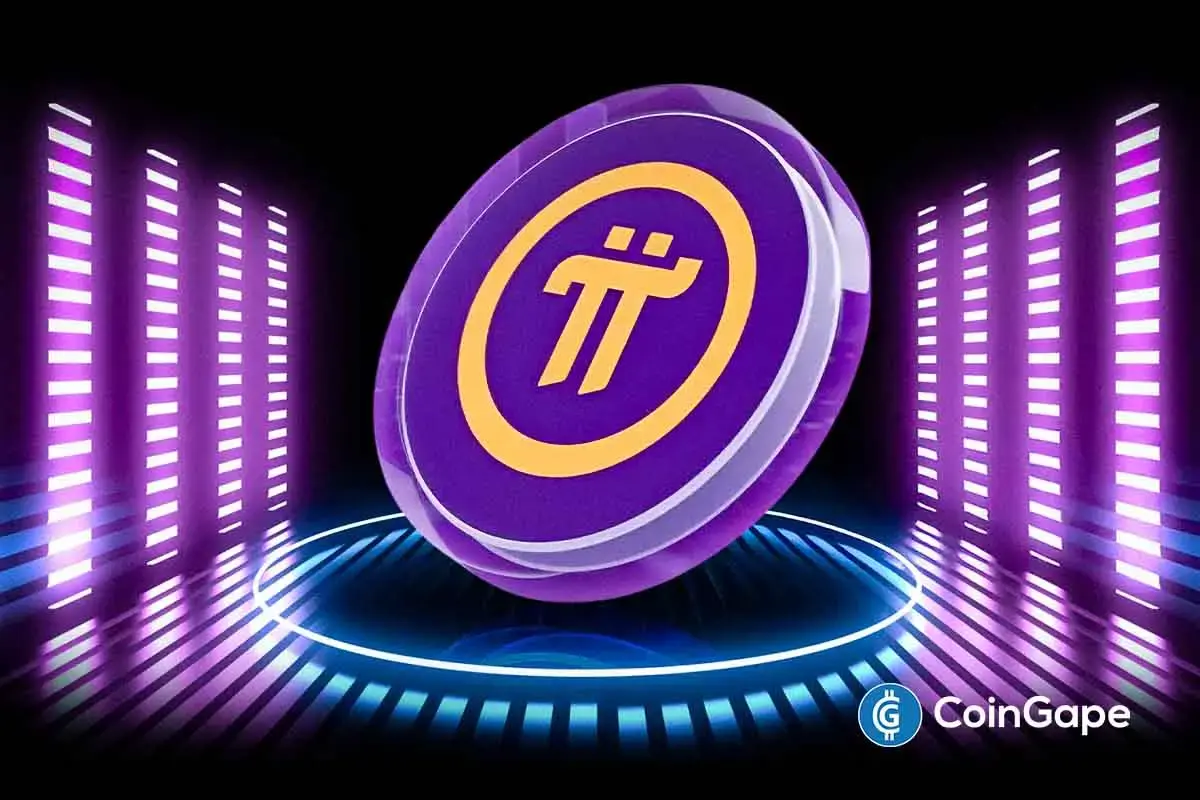
 Altcoin16 hours ago
Altcoin16 hours agoPi Network Faces Community Backlash, Is Pi Coin Price Heading to Zero?
-

 Market15 hours ago
Market15 hours agoVanEck Sets Stage for BNB ETF with Official Trust Filing
-

 Market14 hours ago
Market14 hours agoBNB Price Faces More Downside—Can Bulls Step In?





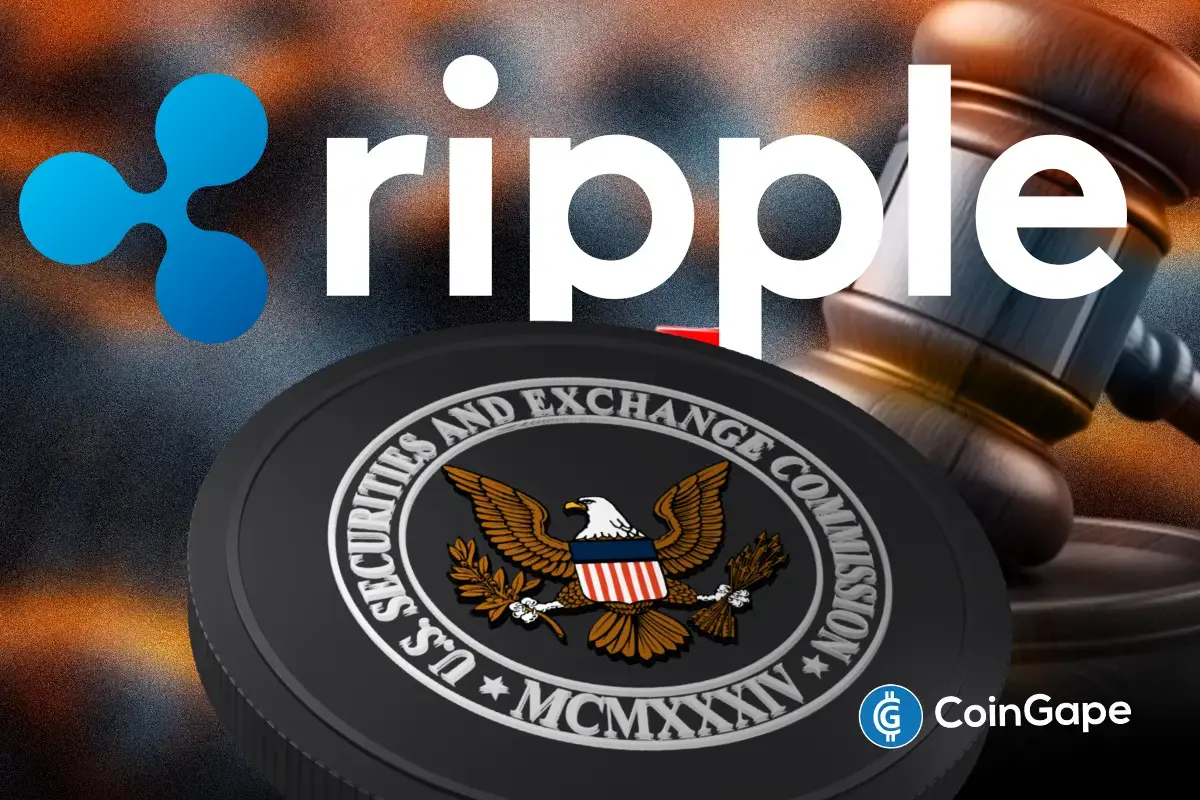



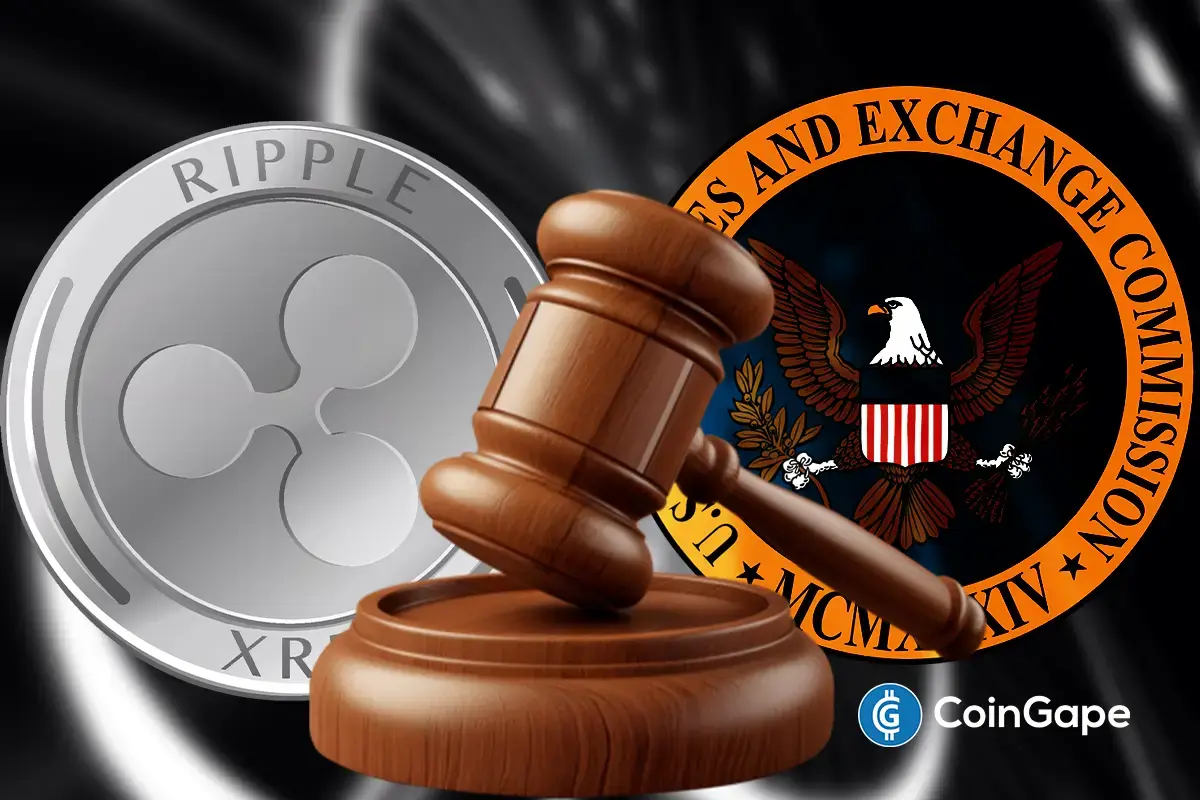

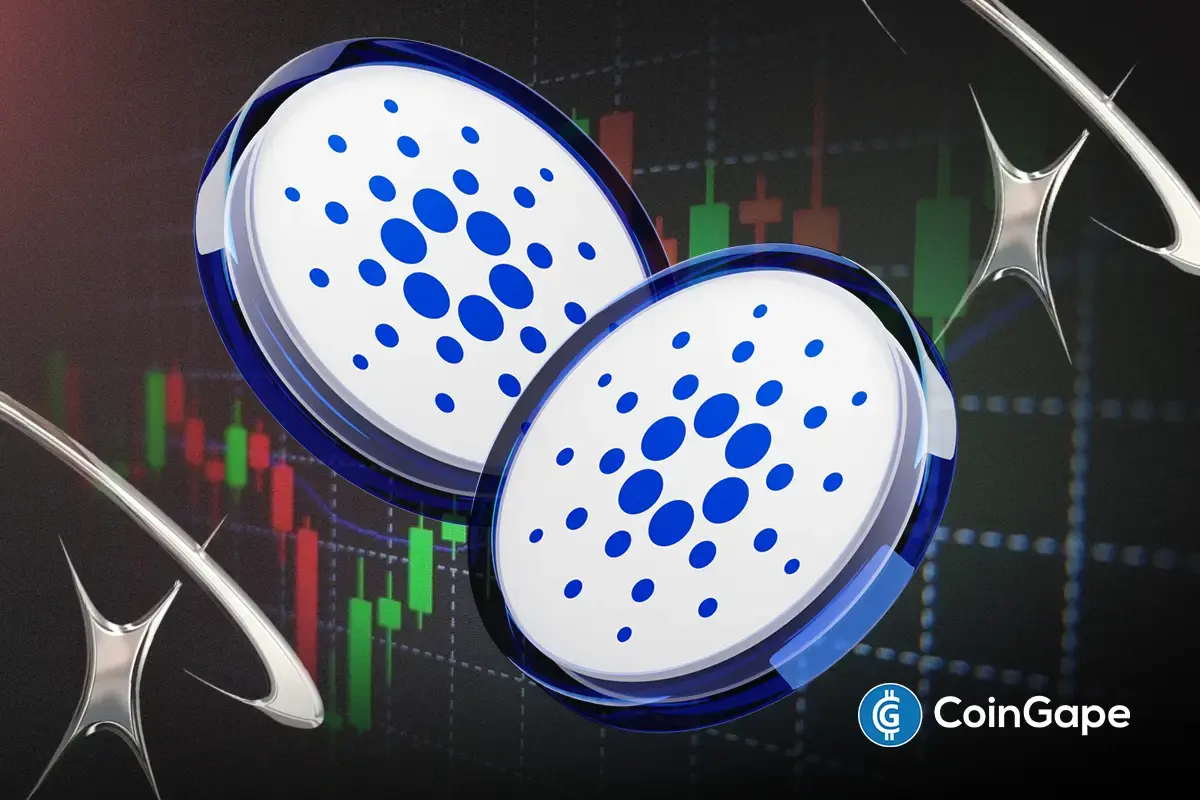



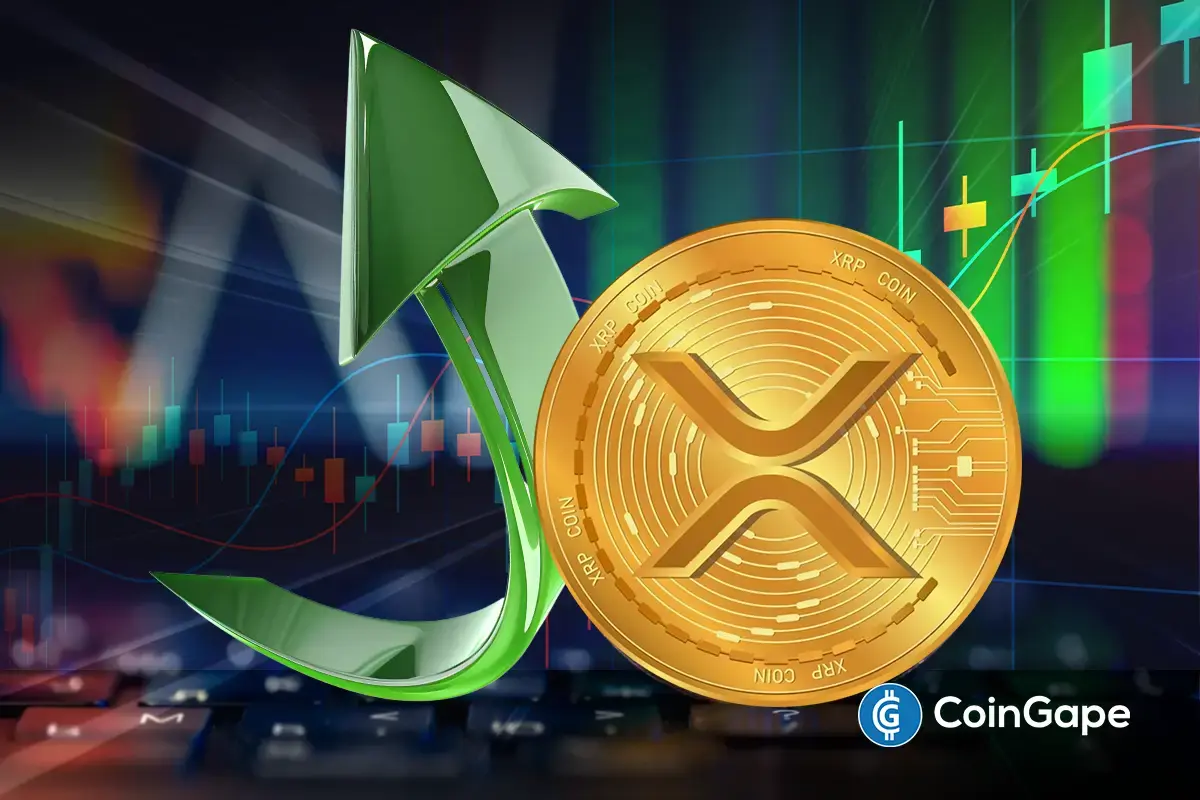






✓ Share: